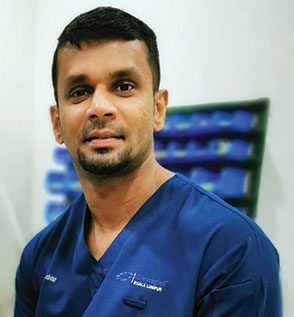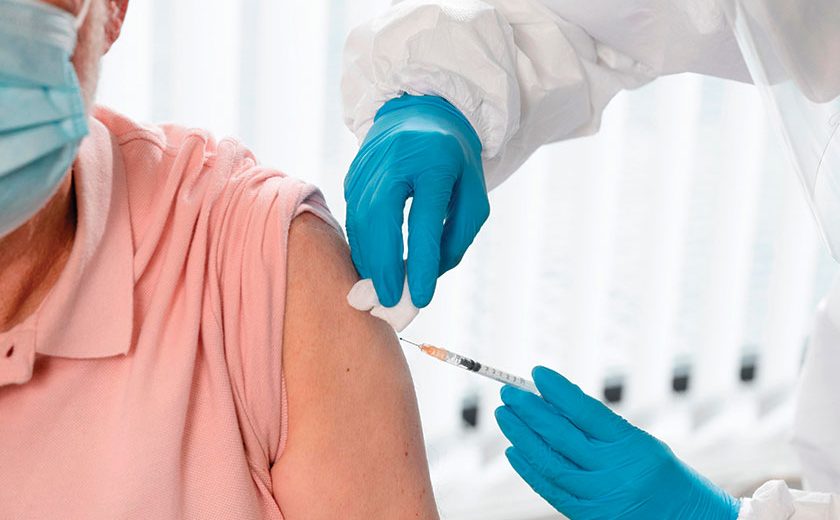Research to date indicates the vaccines for COVID-19 have a very good safety profile-been tested in large clinical trials. Data from the manufacturers show that the known and potential harms of becoming infected with the coronavirus disease 2019 (COVID 19) outweigh the potential safety risks of the vaccines.
According to the Centers for Disease Control and Prevention (CDC), anyone who has a severe allergy (e.g., anaphylaxis) should not receive this vaccine. The CDC says people with allergies to certain foods, insects, latex and other common allergens can safely receive the COVID-19 vaccine.
Common vaccine side effects
According to the Centres for Disease Control and Prevention (CDC) and the World Health Organization (WHO) , common side effects of a COVID-19 vaccine include:
- a fever
- fatigue
- headaches
- body aches
- chills
- nausea
A person might also experience side effects around the injection site, which is usually the upper arm. These might include swelling, pain, redness, an itchy rash, and other mild forms of irritation. People sometimes refer to this issue as COVID arm.
Anaphylaxis is an extremely rare side effect of vaccination. According to the CDC, around 2–5 people per million or less than 0.001% of people vaccinated in the U.S. have experienced anaphylaxis afterward. So far, there aren’t any anaphylaxis cases reported.
No death has been reported as well due to vaccination.
(Severe allergic reaction is called anaphylaxis, and it involves low blood pressure, nausea, and difficulty breathing, among other symptoms.)
What will happen if I refuse to be vaccinated against the Covid-19 virus?
- You aren’t protected from Covid-19 infection
- You can be a silent carrier and spread the disease
- You can cause infection for your own family members and friends
- You aren’t helping the nation to stop the spread of the disease
Duration of protection
COVID-19 vaccination works by teaching your immune system how to recognize and fight the virus that causes COVID-19, and this protects you from getting sick with COVID-19. That’s because experts do not yet know how long you are protected from getting sick again after vaccination from COVID-19. There are few cases reported as active infection of Covid-19 after 6-8 month of post vaccination. As we are still in the very beginning stage of Covid-19 Vaccination program –worldwide, we need more data on this issue.
Who should be first in line for the vaccine?

According to 3 phases:
Phase 1: Front liners
Phase 2: High risk group
Phase 3: Community (adult more than 18 years old)
Can I still take the vaccine if I’m sick?
The only real concern of getting vaccinated when a person is sick that the vaccine dose may increase the severity of your symptoms. It can be harder to distinguish your illness from that of the reactogenic vaccine reactions. In some cases, it can lead to serious side-effects, even if rare and complicate your recovery. The best course of action to take would be to talk to a doctor, or authorities at the vaccination centre beforehand to alert them about the problem at hand and take the necessary course of action.
Precautions taken by doctors in A&E in treating patients
- Hand washing and disinfection hand rub
- Appropriate use of personal protective equipment (PPE) including gloves, mask, eye goggles, face shield and gown.
- Use of disposables and proper cleaning, disinfection, and sterilisation of patient-care equipment.
- Proper housekeeping and management of spillage.
- Management of soiled/contaminated laundry
- Proper disposal of infectious wastes
- Educate the public and patients
If a patient has been identified as Covid 19 positive
The treatment plans for COVID-19 patients in Malaysia are based on 5 levels of severity or clinical category of patients:
- Category 1: No symptom
- Category 2: Symptomatic without lung infection
- Category 3: Symptomatic with lung infection
- Category 4: Symptomatic with lung infection and need oxygen supplementation
- Category 5: Critical patients with multiple organs complications
No specific treatment for COVID-19 patients in Category 1. As of Category 2 and 3, the patients will be given symptomatic treatments such as medicines to relieve fever, cough and flu. The use of more specific types of medications such as antivirals, immuno-modulatory (to reduce inflammatory response) and anticoagulants (to prevent clotting) are meant for more critically ill COVID-19 patients such as Category 4 and 5.
In Malaysia, all patients who are confirmed positive for COVID-19 including those who are asymptomatic will be treated at the designated treatment centres which are either in the hospital or Quarantine and Low Risk COVID-19 Treatment Centre (Pusat Kuarantin dan Rawatan Berisiko Rendah COVID-19, PKRC). This means all COVID-19 patients are isolated from the community. This approach is effective in reducing the risk of COVID-19 infections from spreading to the community. At the treatment centres, the clinical progress of COVID-19 patients will be closely monitored in terms of vital signs, blood tests and imaging according to patients’ needs. These help early detection and prompt treatment to prevent patient’s deterioration, especially patients from Category 3 into Category 4 and 5.
 Dr Sundar Raj a/l Silvaraja
Dr Sundar Raj a/l Silvaraja
Medical Officer (Accident & Emergency Department),
Gleneagles Hospital Kuala Lumpur (GKL)


